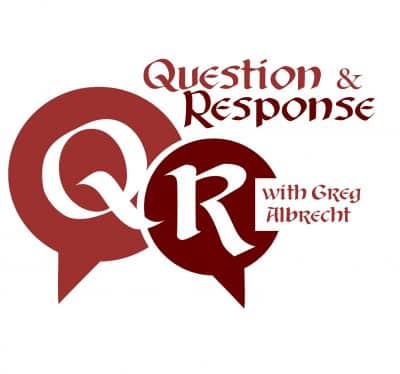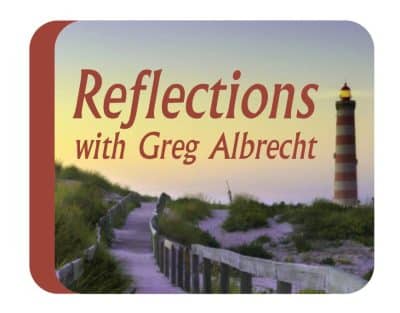Taking a Break from Deconstruction – Caleb Miller
There often comes a time during our perpetual phases of deconstruction when we feel like there just can’t be anything left to deconstruct. If you haven’t hit one of those yet, you will. While the feeling is valid, nothing could be further from the truth. In the same fashion that we’ll never arrive at a place of “knowing” everything there is to know about God, the divine, the mystical world, etc. we’ll never go so far in our deconstruction that we’ll arrive at a place where we “know” everything God is not. Often we’re getting a little more shaky as the ground is swept away, as the revelation of our total misunderstanding is revealed. When the very fabric of what holds all things together is inspected, many find they’d rather stop the process completely. And in these times in which we live, with so little security for many, it is no wonder they cling to the idols of inerrancy and a deus ex machina vision of God. In other words, I believe their “belief” to be a matter of personal emotional security rather than an actual conviction. Note, the difference between conviction and pet peeve is often blurred. A simple way of remembering it is a conviction is something you’d die for, while a pet peeve is something you’d kill for. This works no matter the religious stance of the actor.
These times often simply need a little reconstruction. Lest someone take that wrong, I’m not talking about erecting a new idol in place of the old simply so we’ll have a little security. I’m talking about putting up a few supports so we don’t feel like this cave we’re in is going to collapse at any moment. Dom Crossan has said that each phase of deconstruction needs a minor reconstruction along the way. In his context, he was referring to archaeological reconstruction through discovery, but the idea works here as well. A small dose of cataphatic truth is often all the security we need to face what seems to be the eternal night.
So how do we begin this reconstructive process then? I’ve discussed the notion that there are only three axiomatic statements made about God in the bible.
• God is love
• God is light
• God is father
Reconstruction then can happen around these three statements, or rather, these three statements are the fence within which we can speak of God. The single most common error in how we approach these statements doesn’t come in the way in which our minds interpret them, but in how we maintain a propensity toward fully personalizing anthropomorphisms, ways of speaking about God in terms and imagery we readily understand. Is God actually love? Well, love as a modern construct of feeling and emotion, no. Love here is an anthropomorphism, an idea known to human imagination, not an image to be conjured to reveal any sort of appearance or lack thereof. Or maybe we need to redefine love and understand that if God is love, then there are a number of things we can reconstruct to say about God. In other words, since we have our cataphatic statement here, God is love,then we can reconstruct both by affirmation and denial.
If God is love, then:
• We are not.
• Love is not a way of describing how we feel about one another.
• God is not hate.
Not so difficult to reconstruct here and there is it? Meditating on this statement and keeping it simple is the first step to a small reconstruction. The problem arises when we allow one of two things to happen.
Option 1
We begin taking the next step to describe what love is, using personal experience to define love rather than allowing love to redefine our personal experience. To put that another way, if God is love, then when we look back at our lives, everywhere we feel like we’ve “seen God” better be an experience of love, or it’s not God.
Option 2
We allow doctrine and dogma to redefine love. That is, to use an old example, we’ve allowed someone to tell us that for some reason, love will break your legs to bring you home.
If we disallow the opinions of our experience[1], or the opinions of the peanut gallery[2] we will find that reconstruction is not so difficult a process. The problem is, reconstruction is far too simple. We could spend days, months, and years making attempts at describing what love is, what light is, and how a father acts, but that is all commentary on the truth itself. In other words, the truth is so simple it takes us billions of years to screw it up and cloud it to the point that we now need religion to teach us everything wrong about God so we go seeking him for ourselves. To shorten that run-on sentence, God is simple. God is love. The real problem has come in the form of miniature garden scenarios playing out daily in our lives, with us trying to be love, thereby necessitating a redefinition of the term itself. We are playing God each time we attempt to love someone out of our own affections and desires. Our mimetic desire for the other is just as poisonous as our mimetic rivalry with them. Rivalry is at least played on the sleeve. Desire is far more insidious, as without God as the ground of love’s being, desire leads to possession, manipulation and eventually, the slow death of the object through the subject’s perverted vision of “love”.
[This is why understanding our mimetic inner workings is so vastly important. God is love, and we are not, which means that everything we do is influenced by our own internal desires, mimesis. Those desires are fueled by the community, as in terms of “beauty” and “success”. They are fueled by religion vis a vis prohibition, as prohibition only breeds desire for the object, or as Paul said “the law is the strength of sin”. Finally they are fueled by the divine. What we see in God, or what we think we see, will be played out in our daily lives. To put it as simply as I can, violent God=violent humans. There’s no escaping it. We become what we worship through imitation of the other. Some may fight it, but will eventually realize that all the [so-called] Christian adages they continually spout reveal the truth about it all. In other words, “Bad company corrupts good morals” isn’t strictly between humans, neither is being unequally yolked.]
This is why phases of reconstruction are so important during our continual deconstructive processes. Taking a moment to simply meditate on God is love allows us the room to breathe, buttresses up the cave a bit to prevent disaster, and helps us get back on our journey. There’s nothing wrong with taking a break. There’s nothing wrong with catching your breath. And there’s absolutely nothing wrong with realizing the insecurity that comes along with putting our God under scrutiny. God can take it.
We’ll never “pop out” the other side of God and think, “Well, that was fun, what’s next?” so enjoying a few days, weeks, months and years meditating on the eternal truths of love, light and lineage isn’t going to make us lose any time on our journey. In fact, it may just give us what we need for the darkness that lies ahead.
1 – Disallowing experience does not mean we negate every mystical experience. It means that those experiences are subject to the truth that God is love, rather than the opposite.
2 – Disallowing the opinions of others does not mean we ignore the tradition. It means that, as Paul, we do not “confer with flesh and blood” regarding the truth that God is love (even our own flesh and blood).









 Plain Truth Ministries | Box 300 | Pasadena, CA 91129-0300
Plain Truth Ministries | Box 300 | Pasadena, CA 91129-0300

